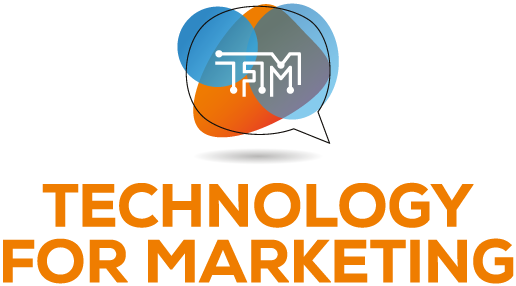The Rise of Influencer Accountability: Misrepresentation, Fines, and Evolving With The Industry
)
In today’s digital economy, high-profile social media influencers wield significant power over consumer behaviour. However, with great influence comes great responsibility. From Italy to the UK and beyond, regulatory bodies are increasingly holding influencers and brands accountable for misleading endorsements and opaque advertising practices.
When Influence Backfires: The Chiara Ferragni Story
Italian influencer Chiara Ferragni recently faced severe fallout from the so-called “Pandorogate” scandal. She promoted a limited-edition holiday cake, implying proceeds would support a children’s hospital. However, investigations revealed that the hospital received only a €50,000 donation, while her brand saw significant profits. As a result, Italy’s Competition Authority fined Ferragni over €1 million, with an additional €3.4 million paid in fines, donations, and compensation to resolve the case.
The scandal sparked the creation of what's now known as the "Ferragni Law" in Italy. This law introduces tougher rules for influencers with over a million followers, especially when it comes to promoting charitable causes.
Revolve's $50 Million Lawsuit: A Wake-Up Call for Influencer Marketing
In April 2025, Revolve Group Inc., a prominent U.S. online fashion retailer, was hit with a proposed $50 million lawsuit. The suit alleges Revolve compensated influencers with cash, luxury trips, and free products to promote its offerings without proper disclosure, violating federal and state consumer protection laws. Influencers named in the lawsuit allegedly failed to use FTC-required disclosures like "#ad" or Instagram's "paid partnership" label when posting promotional content about Revolve.
The lawsuit claims Revolve’s undisclosed influencer posts misled shoppers, pushing them to pay premium prices. The brand’s billion-dollar influencer marketing strategy is now under the spotlight for misleading and deceptive practices.
SHEIN’s PR Disaster: When Influencer Trips Cross a Line
In mid-2023, fast-fashion giant SHEIN invited a group of American influencers to tour its factories in China. The trip was intended to counter growing criticism about SHEIN’s alleged labor violations and environmental harm. Influencers posted glowing reviews of factory conditions—but audiences quickly accused them of whitewashing human rights concerns and spreading corporate propaganda.
Although the influencers disclosed the trip was sponsored, critics argued the power imbalance and lack of transparency around the visit created a misleading narrative. The backlash was swift: brands were called out, influencers lost credibility, and SHEIN faced renewed scrutiny from media and regulators.
Global Crackdowns on Influencer Misconduct
Ferragni's case is not isolated. In the UK, the Advertising Standards Authority (ASA) has taken action against several influencers for failing to disclose paid partnerships. Notably, Molly-Mae Hague, a former Love Island star, had an Instagram post banned for not indicating it was an advertisement for Pretty Little Thing, despite her role as the brand's creative director.
The ASA has also named and shamed influencers like Jodie Marsh and Chloe Ferry for repeatedly violating advertising regulations. These actions highlight the ASA's commitment to enforcing transparency in influencer marketing.
The Australian Competition and Consumer Commission (ACCC) announced a crackdown on misleading influencer endorsements across social media platforms in Australia. The ACCC emphasised that influencers posting deceptive reviews without disclosing relationships could face penalties of up to $2.5 million.
Similarly, India's Advertising Standards Council (ASCI) has also been proactive. In 2024, ASCI took action against Sugar Cosmetics after finding that influencer promotions lacked scientific backing and proper disclosure of paid partnerships. The brand collaborated with influencers to revise content, ensuring compliance with transparency standards.
Looking Ahead: Evolving with the Industry
Influencer marketing is evolving fast, and so are the rules that govern it. Staying compliant isn’t just about avoiding fines—it’s about protecting brand trust in a highly competitive and transparent digital world. That means building influencer strategies with integrity from the ground up: clear disclosure of paid partnerships, proactive training for creators, and internal checks to ensure messaging is ethical and aligned with the law.
Brands that take a proactive approach—educating their partners and embedding transparency into their campaigns- will be better positioned to comply and lead. As consumer expectations rise, those who adapt quickly will set the standard for a more responsible and sustainable influencer ecosystem.
Latest News
-
Kat Worley on Optimising the Online Experience
26 Nov 2025Ecommerce manager Kat Worley shares how data, creativity, and customer-centric thinking shape impactful digital experiences, reflecting on career lessons, platform insights, and the innovations transf ... -
Top 100 Marketing Influencers — 2025 Ranked List
30 Sept 2025Discover the Top 100 Marketing Influencers of 2025. The visionaries, innovators, and disruptors shaping digital, brand, content, social, and growth marketing, driving conversations and redefining indu ... -
Meet some of the team behind eCommerce Expo and Technology for Marketing. From planning highlights to industry trends, discover how they shape the UK’s biggest retail and marketing events.
-
Grace Miller reveals how “failing smarter” transforms experimentation into growth. From lessons learned to advice for future innovators, she explains why embracing failure is the key to progress in eC ...
-
How Temu Helped This UK Manufacturer Increase Sales and Create Jobs
26 Aug 2025 TemuFacing rising costs and shrinking sales channels, Nova Tissue turned to Temu. The platform rapidly boosted sales, safeguarded margins, and created UK jobs—transforming e-commerce into a major growth d ... -
Michelle Hurney on Personalised & Powerful: Driving Retention Through Smart CRM
20 Aug 2025 Phoebe Dunsmore, Marketing ExecutiveMichelle Hurney, Head of CRM at Wonderskin, explores career lessons, customer engagement, and how data, empathy, and AI shape the future of retention-focused marketing. -
The Rise of Influencer Accountability: Misrepresentation, Fines, and Evolving With The Industry
20 Aug 2025 RightlanderIn today’s digital economy, high-profile social media influencers wield significant power over consumer behaviour. However, with great influence comes great responsibility. From Italy to the UK and be ...

)
)
)
)
)
)
)
)
)
)
)
)

)
)
)
)
)
)
)
)
)
)
)
)
)
)
)
)
)
)
)
)
)
)
)
)
)